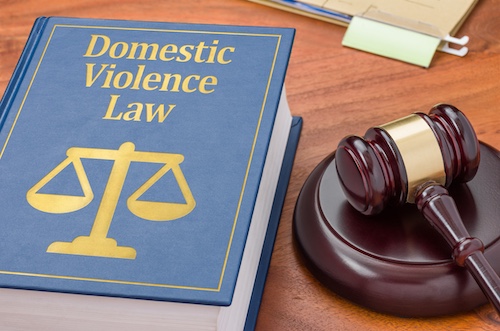Domestic Assault in Tennessee: What You Need to Know
At Byron Pugh Legal, we provide dedicated criminal defense for clients across Nashville and Middle Tennessee. Our firm focuses on protecting the rights of individuals charged with offenses such as domestic assault, DUI, drug crimes, and other serious criminal charges. We combine courtroom experience with a direct, client-focused approach to build strong defenses and pursue the best results. Every case matters, and we are committed to giving our clients the skilled representation they deserve.
Being charged with domestic assault in Tennessee is a serious legal situation with immediate penalties and lasting consequences. A conviction can mean jail time, steep fines, loss of firearm rights, and a permanent criminal record that affects employment, housing, and family relationships.
Understanding how Tennessee law defines domestic assault, the penalties involved, and the steps to take after being charged is critical. The guidance of a Nashville domestic assault lawyer can make the difference between severe consequences and protecting your future.
What Counts as Domestic Assault in Tennessee?
Domestic assault in Tennessee is treated as a serious criminal offense with immediate and lasting consequences. Understanding how state law defines this charge is the first step in preparing a strong defense.
Definition Under Tennessee Law
Under Tennessee Code Annotated § 39-13-111, domestic assault is an assault against a current or former spouse, someone with whom you live or have lived, a person you are dating or have dated, someone you share a child with, or a family member. The law recognizes that abuse can occur in many types of relationships, not only between spouses.
Conduct That Qualifies as Domestic Assault
Domestic assault includes physical contact that causes bodily injury, threats of imminent bodily injury, or contact that would be considered extremely offensive to a reasonable person. It also covers acts of emotional abuse, sexual abuse, and abusive behavior that result in physical harm or significant harm. A person may be charged even if the alleged victim does not show serious bodily injury but claims fear of physical violence.
Misdemeanor Domestic Assault vs. Aggravated Assault
A misdemeanor domestic assault charge may involve unwanted physical contact, recklessly causing bodily injury, or creating fear of imminent harm. This is different from aggravated assault, which involves the use of a deadly weapon, causing serious bodily injury, or creating a risk of significant harm. Aggravated assault is treated as a felony and carries harsher penalties, including longer jail time and more severe legal consequences.
Who Can Be Considered an Alleged Victim
An alleged victim may be a current or former spouse, a person in a sexual relationship, a cohabitant, or a family member. Tennessee law also extends protection to domestic abuse victims in cases involving child abuse or where there is evidence of ongoing abusive behavior.
Immediate Legal Penalties and Collateral Consequences
A domestic assault charge in Tennessee brings swift and serious penalties, along with lasting effects that extend beyond the courtroom.
Misdemeanor Domestic Assault Penalties
A first offense may be charged as a misdemeanor depending on the facts of the case. A Class A misdemeanor can bring up to 11 months and 29 days in jail and fines of up to $2,500. A Class B misdemeanor can result in up to six months in jail and fines of up to $500. These penalties increase if the accused has a prior criminal history or a subsequent conviction.
Felony Aggravated Assault Penalties
If the incident involves a deadly weapon, serious bodily injury, or a risk of significant harm, the charge may be classified as felony aggravated assault. A Class C felony carries three to fifteen years in prison and fines up to $10,000. A Class D felony carries two to twelve years in prison and fines up to $5,000. These harsher penalties reflect the seriousness of crimes involving physical violence or severe consequences to the alleged victim.
Firearm Restrictions and Civil Consequences
A person convicted of domestic assault loses the right to possess firearms under Tennessee law and federal law. This applies to both misdemeanor domestic assault and felony aggravated assault. Conviction can also affect divorce proceedings, child custody, and child abuse investigations.
Long-Term Collateral Consequences
A domestic assault conviction creates a permanent criminal record. This can harm employment opportunities, housing applications, and professional licensing. The court may also require mandatory counseling, probation, or anger management programs. These legal consequences extend far beyond jail time and fines, creating obstacles in nearly every part of life.
The Serious Consequences of a Domestic Assault Conviction
A conviction for domestic assault in Tennessee carries penalties that extend beyond sentencing and can alter nearly every part of life.
Damage to Reputation and Career
A domestic assault conviction creates a permanent criminal record that can be seen by employers, licensing boards, and professional organizations. This record can prevent career advancement, limit new job opportunities, and lead to the loss of existing employment. The stigma of being labeled as a person convicted of domestic violence can follow someone long after the case ends.
Loss of Rights and Freedoms
Tennessee law prohibits a person convicted of domestic assault from owning or possessing firearms. This restriction applies even to misdemeanor domestic assault convictions. In addition, a conviction may include mandatory counseling, probation, or court-ordered treatment. These legal penalties create lasting restrictions that extend well past jail time.
Impact on Family and Relationships
A domestic assault case often affects family members and close relationships. A conviction can influence divorce proceedings, child custody arrangements, and visitation rights. Allegations of physical abuse, emotional abuse, or child abuse carry severe consequences in family court, where judges prioritize the safety of domestic abuse victims and children.
Exposure to Harsher Penalties in the Future
A first conviction may lead to enhanced penalties for repeat offenders. A subsequent conviction can result in longer jail time, higher fines, and stricter probation terms. Repeat convictions increase the chance of facing felony charges and more severe penalties under Tennessee law.
What to Do Immediately After Being Charged
The first steps taken after a domestic assault charge in Tennessee can shape the entire case and future outcome.
Do Not Contact the Alleged Victim
Any attempt to call, message, or visit the alleged victim can violate bond conditions and lead to new criminal charges. Courts treat protective orders seriously, and violations bring immediate legal penalties.
Exercise the Right to Remain Silent
Anything said to law enforcement or third parties may appear later as part of the prosecution’s evidence. It is safer to remain silent and wait until speaking with a Nashville domestic assault attorney before making statements.
Contact a Nashville Domestic Assault Lawyer
An experienced defense attorney can review the facts, explain the legal situation, and protect constitutional rights. Having a lawyer early in the process increases the chances of avoiding harsher penalties or a permanent criminal record.
Gather and Preserve Evidence
Keep records of text messages, emails, or call logs that may support the defense. Witness statements, photos, and other proof can help show false accusations, self-defense, or lack of intent to cause bodily injury.
Follow All Court Orders Strictly
Obeying bail conditions, attending scheduled hearings, and completing required evaluations show the court a willingness to comply with the judicial system. Violations often lead to severe consequences, including jail time.
Possible Defenses Against Domestic Assault Charges
Domestic assault charges can be challenged through defenses recognized under Tennessee law, depending on the facts of the case.
Self Defense or Defense of Others
A common defense is that the accused acted in self-defense or to protect another person from physical harm. If there is proof that the alleged victim initiated the violence or posed a threat of imminent bodily injury, the law allows the use of reasonable force in response.
False Accusations
Domestic assault cases sometimes arise from false accusations made during divorce proceedings, custody disputes, or personal conflicts. Evidence such as inconsistent testimony, messages, or witness accounts may show that the allegations lack credibility.
Lack of Evidence
The prosecution must prove guilt beyond a reasonable doubt. If there is insufficient proof of bodily injury, unwanted physical contact, or extremely offensive conduct, the charge may not stand. A Nashville domestic assault attorney can challenge the prosecution’s evidence and question whether a reasonable person would view the incident as abusive behavior.
No Intent to Cause Harm
Domestic assault requires proof that the accused acted intentionally, knowingly, or recklessly. If there was no intent to cause bodily harm and no threat of serious violence, the charge may be reduced or dismissed.
Mitigation and Alternative Outcomes
First-time offenders may qualify for diversion programs, probation, or mandatory counseling instead of jail time. These options can prevent a permanent criminal record and reduce the severe penalties that follow a conviction.
Protect Your Future with Byron Pugh Legal!
If you are facing domestic assault charges in Nashville, you need an experienced legal team that knows Tennessee law and the stakes involved. At Byron Pugh Legal, our Nashville domestic assault attorneys fight to protect your rights, challenge the prosecution’s evidence, and work toward the best possible outcome for your case. Do not face these serious consequences alone.
Contact us at 615-255-9595 for a free case consultation today!









